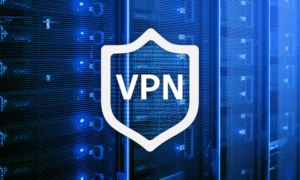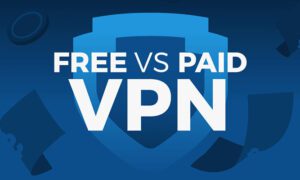Introduction
In the modern-day digital age, where our lives are increasingly intertwined with the online world, making sure the security and privacy of our online activities have grown to be paramount. With cyber threats and information breaches on the rise, it is essential to guard our private information and surfing behavior from prying eyes. This is where a VPN (Virtual Private Network) comes in as the shield for your online fortress. In this comprehensive manual, we are able to delve into the sector of privacidadenlared VPNs, exploring their advantages, functionalities, and how they can beautify your online protection.
The Basics of VPNs
What is a VPN?
A VPN, or Virtual Private Network, is a technology that establishes a steady and encrypted connection between your device and the internet. It acts as a tunnel, routing your internet visitors through an encrypted server, thereby overlaying your IP address and shielding your facts from unauthorized access. VPNs provide an added layer of security and privacy, making them a critical tool for people and organizations alike.
How Does a VPN Work?
When you hook up with a VPN server, it encrypts your internet site visitors and assigns you a new IP address. This technique guarantees that your online activities remain private and anonymous. By routing your site visitors through a far-flung server, VPNs make it hard for anyone to track your online behavior or steal your sensitive statistics. It creates a steady connection between your tool and the net, safeguarding your statistics from hackers, ISPs, and different malicious entities.
Why Do You Need a VPN?
- Enhanced Security: A VPN encrypts your internet traffic, making it almost impossible for hackers or cybercriminals to intercept and decipher your information. It adds an additional layer of protection, especially when using public Wi-Fi networks.
- Privacy Protection: By masking your IP address and encrypting your net connection, a VPN ensures that your online activities remain private. It prevents your ISP and other third parties from monitoring your browsing behavior and collecting your private facts.
- Access to Restricted Content: VPNs let you pass geo-regulations and get right of entry to content that may be blocked in your area. With a VPN, you can circulate your favorite suggestions, get admission to censored web sites, and enjoy an unrestricted net experience.
- Anonymous Torrenting: If you engage in torrenting or document sharing, a VPN can protect your identity and keep you anonymous. It hides your IP address, making it difficult for copyright trolls or the government to trace your online activities back to you.
- Remote Access and Business Use: VPNs permit secure remote access to an enterprise’s community for employees working remotely. They offer a secure connection, permitting employees to get admission to agency sources without compromising the safety of records.
VPN Protocols: Understanding the Technology Behind VPNs
What Are VPN Protocols?
VPN protocols are the underlying technologies that govern how data is transmitted between your device and the VPN server. They decide the extent of safety, velocity, and functionality of your VPN connection. Let’s explore a number of the typically used VPN protocols:
- OpenVPN: OpenVPN is an open-source protocol regarded for its robust safety and flexibility. It makes use of OpenSSL encryption to create a secure tunnel for data transmission. OpenVPN is extraordinarily configurable and supports an extensive variety of operating systems, making it a popular preference amongst VPN providers and customers.
- IPSec: IPSec (Internet Protocol Security) is a suite of protocols that offers steady conversation over IP networks. It provides sturdy encryption and authentication mechanisms, making it suitable for establishing stable VPN connections. IPSec can function in two modes: transport mode, wherein the data payload is encrypted, and tunnel mode, where the whole IP packet is encrypted.
- L2TP/IPSec: L2TP (Layer 2 Tunneling Protocol) blended with IPSec offers a steady VPN connection. L2TP creates a tunnel between the consumer and server, while IPSec ensures the confidentiality and integrity of the information transmitted via the tunnel. L2TP/IPSec is widely supported by various working structures and gadgets.
- WireGuard: WireGuard is a relatively new VPN protocol recognized for its simplicity and excessive overall performance. It aims to be quicker, more secure, and less difficult to enforce than conventional protocols. WireGuard makes use of ultra-modern cryptography and is gaining reputation in the VPN network.
Choosing the Right VPN Protocol
When deciding on a VPN provider, it is important not to forget the protocol they offer. Each protocol has its strengths and weaknesses, and the selection depends on your precise wishes. Factors to remember encompass security, velocity, compatibility, and simplicity of use. It’s recommended to pick out a VPN issuer that offers a couple of protocols, allowing you to exchange among them based totally on your necessities.
Benefits of Using a VPN
A VPN offers numerous benefits that go beyond protection and privacy. Let’s discover some of the benefits of using a VPN:
- Bypassing Censorship: In nations with strict internet censorship, a VPN can help bypass those restrictions and access blocked websites and services. By connecting to a VPN server in a specific location, you could sidestep censorship and experience an unrestricted internet experience.
- Safe Public Wi-Fi: Public Wi-Fi networks are infamous for their lack of security, making them top targets for hackers. By using a VPN on public Wi-Fi, you may encrypt your connection and protect your records from access threats.
- Anonymous Browsing: A VPN allows you to browse the internet anonymously by overlaying your IP address and vicinity. This prevents web sites, advertisers, and other entities from monitoring your online activities and amassing your non-public facts.
- Secure Online Banking: When conducting online banking or financial transactions, it is essential to ensure the security of your statistics. A VPN adds a further layer of encryption, making it safer to access your financial institution’s money and shielding your sensitive information.
- Torrenting Safely: If you interact in torrenting or peer-to-peer document sharing, a VPN can defend your privacy and save you from any prison repercussions. It masks your IP address, making it hard for copyright trolls or the government to trace your online sports returns to you.
FAQs About VPNs
- Can I use a VPN on my cell phone?
Yes, most VPN carriers provide apps for cellular gadgets, including smartphones and tablets. These apps are designed to offer a continuing VPN experience on the go, permitting you to stabilize your internet connection and guard your privacy wherever you are.
- Is using a VPN a felony?
Yes, using a VPN is legal in most international locations. However, it is critical to observe that while VPNs themselves are a felony, their utilization may be subject to certain regulations. It’s really useful to familiarize yourself with the legal guidelines and guidelines regarding VPN utilization for your United States of America or jurisdiction.
- Can a VPN slow down my internet connection?
Yes, the use of a VPN can doubtlessly slow down your internet connection. The encryption and routing of your internet site visitors through a VPN server can introduce a slight delay. However, a reputable VPN company will strive to decrease this impact and provide optimized servers for higher performance.
- Can I use a VPN to get right of entry to streaming offerings like Netflix?
Yes, many VPN companies offer servers optimized for streaming, permitting you to pass geo-regulations and get right of entry to content material from unique regions. However, it is worth noting that streaming offerings have become increasingly sophisticated in detecting and blocking VPN visitors. Not all VPNs can efficiently skip these restrictions, so it is critical to select a VPN company that actively works to offer access to famous streaming offerings.
five. Are all VPNs similarly steady?
Not all VPNs are created equal in terms of protection. It’s critical to pick out a reputable VPN issuer that employs sturdy encryption protocols, follows strict no-logging policies, and often undergoes unbiased protection audits. Reading opinions, checking for certifications, and studying a VPN company’s security practices can help make sure you pick out a truthful and steady provider.
- Can I use a VPN for gaming?
Yes, a VPN may be used for gaming to enhance safety and get right of entry to vicinity-restricted games or game servers. However, it’s important to remember the capability’s impact on latency and connection speeds. Connecting to a VPN server farther from your physical location can introduce additional latency, which might not be applicable for online gaming that requires quick response times.
Conclusion
In an increasingly interconnected world, protecting our online presence is of extreme significance. A VPN serves to protect your online castle, providing security, privacy, and freedom whilst navigating the digital panorama. By encrypting your net connection, covering your IP address, and providing a range of other advantages, VPNs have grown to be a crucial device for individuals and organizations alike. So, take the vital steps to improve your online safety and embody the electricity of VPNs.



































